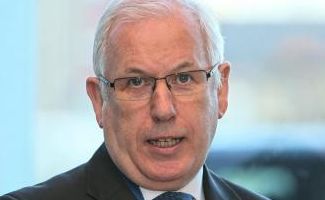SPA chair withholds letter from HMICS ahead of governance review
The chair of the Scottish Police Authority (SPA) has been accused of censorship after he failed to share a letter with colleagues regarding private committee meetings.
The chair of the Scottish Police Authority (SPA) has been accused of censorship after he failed to share a letter with colleagues regarding private committee meetings.
In a letter to Andrew Flanagan, Her Majestys Chief Inspector of Constabulary in Scotland (HMICS) Derek Penman questioned whether the SPA had sufficient credibility to conduct key business behind closed doors.
Although the aim of Mr Penmans letter was to inform the SPA board ahead of a meeting on the new proposals, Mr Flanagan did not share it with any of his colleagues.
A governance review by Mr Flanagan then led to committee meetings being held in private, and for board papers to only be made available on the day of the meeting.
In his letter, sent six days before the SPA met in December, Mr Penman said holding private meetings goes against the boards key principle of transparency, and its commitment that the authority should operate to the highest standards of public sector administration and management.
He also noted that although HMICS was involved in an early draft of the framework, it did not receive a revised copy and the supporting documents until the beginning of December much later than expected.
I note that the Audit Committee, Finance Committee and Policing Committee all focus on providing oversight and scrutiny and I would question the need for their important work to be conducted in private, Mr Penman added.
My final observation relates to the current maturity of both the SPA and Police Scotland and whether on the basis of past experiences, you have sufficient credibility and confidence amongst politicians, public, stakeholders and your own staff to support your proposal that much of your scrutiny should be conducted in private.
I would have thought it more beneficial for the SPA to implement its new governance structures in public, not only demonstrating increased competence over its statutory functions, but demonstrating its commitment to openness and transparency in holding the chief constable to account for the policing of Scotland.
The SPA was formed to provide oversight of Police Scotland, but the watchdog has been subject to criticism recently over lack of transparency.
Board member Moi Ali objected to the new framework approved on December 15 and asked for her opinion to be minuted.
However, Mr Flanagan responded to her in a letter expressing his dismay at Ms Alis public criticism of the reforms, which led to her resignation.
Ms Ali told the Herald: Im disappointed the chair chose not to share this letter from a key stakeholder. This smacks of censorship.
A spokesperson for the SPA said: “The Chair published his review of governance last March, recommendations were accepted last June by the Cabinet Secretary, and there were no surprises in the subsequent governance framework approved by the board in December.
The members of the SPA board discussed governance review implementation at their monthly business meetings throughout the second half of last year. It is for the SPA board to make decisions on its governance arrangements, and HMICS will in due course inspect us on the effect of those arrangements through its statutory responsibilities.
The board has already made clear it is keeping the revised arrangements implemented in January under review.”


